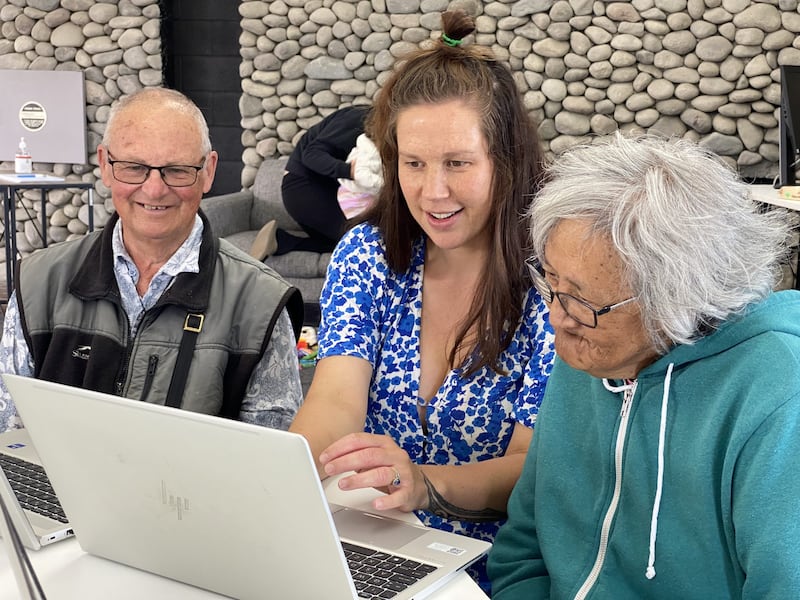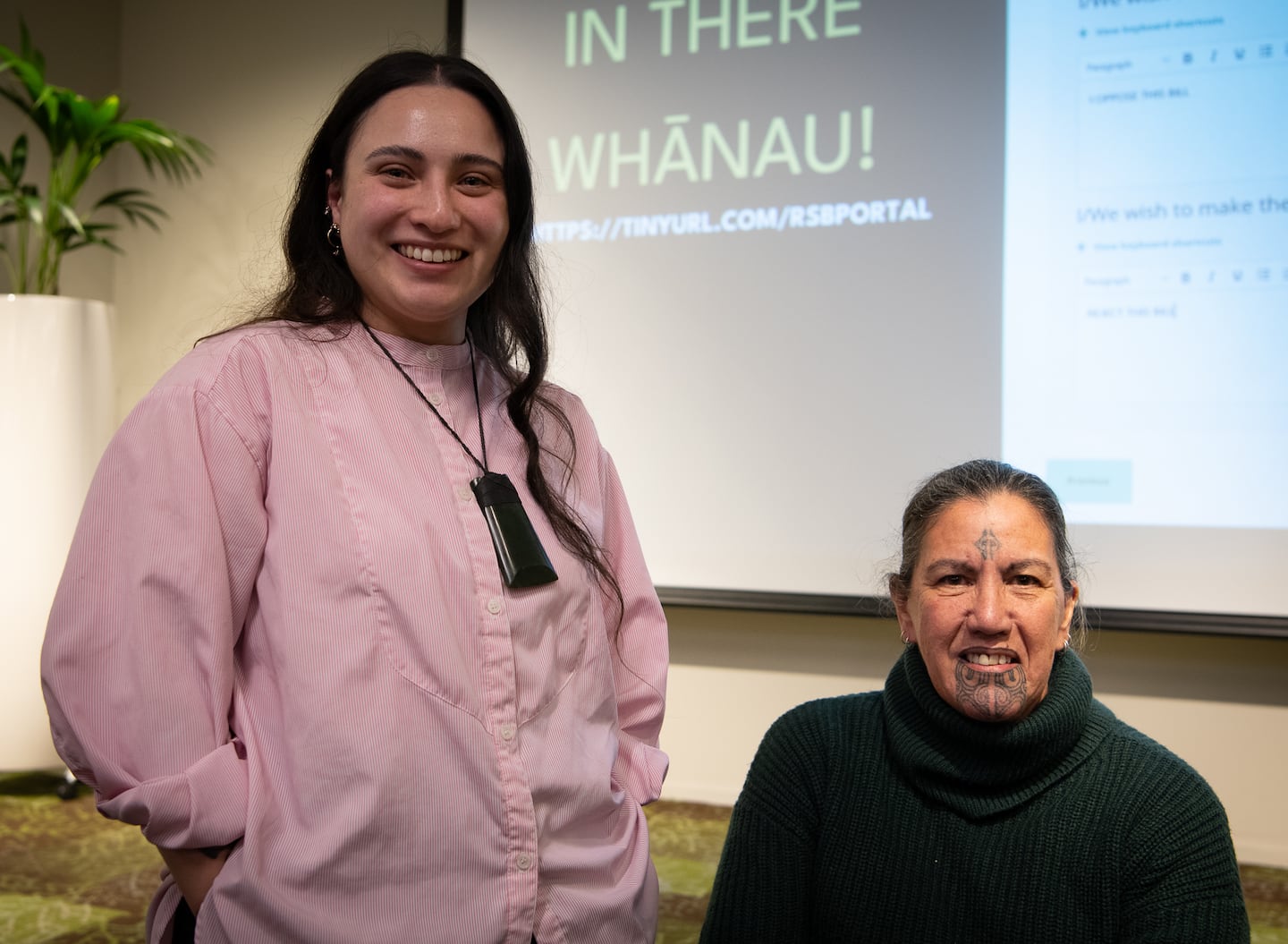Taranaki Iwi has started helping people write submissions against the contentious Regulatory Standards Bill, as promised during last year’s workshops against the Treaty Principles Bill.
While ACT’s leader David Seymour touts it as a drive to improve law making, critics argue that it prioritises corporate interests over environmental protection and indigenous rights.
Iwi and hapū across Taranaki are gearing up to fight the bill, with multiple submission workshops in the coming fortnight.
The sense of urgency is stronger than for the Treaty bill, which was always expected to be voted down at its second reading.
Dr Meri Haami told Te Kāhui o Taranaki’s workshop on Thursday evening that the Regulatory Standards Bill is more dangerous because the coalition agreement commits to pass it “as soon is practicably possible”.
Haami said the proposed law would elevate Act’s ideological position on law-making above constitutional safeguards like the Treaty of Waitangi and the Bill of Rights Act.
The Regulatory Standards Bill calls for all future laws and regulations to be tested against a set of principles, codifying Act’s views on good standards of law-making.
Existing laws would be subject to retrospective testing.
Only Treaty of Waitangi settlements, the Marine and Coastal Area Act and private acts passed by Parliament would be exempt.
The Minister of Regulation – currently Seymour - would pick a board to review the laws.
The minister said the Regulatory Standards Bill would make sure Parliament’s decisions were “based on principles of good lawmaking and economic efficiency”.
Seymour told RNZ what mattered was not the opposition but the quality of the legislative framework.
He said the bill was non-binding and about transparency, not enforcement.
“We have massive problems with regulation,” Seymour said, citing an example of delays in approving lower-emission agricultural chemicals.
The first version of the Regulatory bill was drafted in 2001 by the Business Roundtable – now the New Zealand Initiative.
Act failed to get versions through Parliament in 2006, 2011 and 2021.

Seymour’s own Ministry of Regulation recommended the bill not proceed: its discussion document drew 23,000 responses with 20,000 opposed and only 76 in support – 0.33 percent of respondents.
The Waitangi Tribunal also recommended the bill be halted for lack of consultation with Māori.
Despite the bill’s complexity, Haami said submitting was easy: people simply needed to say they oppose the bill entirely and call on MPs to reject it outright.
“You want to be clear that you never want to let that smell into the room again.”
She said opposition must be clearly stated to be counted by officials.
Apart from that people could “Frankenstein” their submission by stitching together lines being shared on social media.
Professor Leonie Pihama also encouraged people to zoom in on whatever resonated personally - while keeping in mind the big picture.
“If we think about neoliberalism, it’s really about the removal of the government’s ability to… regulate and legislate, to do anything, and putting all of that into the hands of market economic drivers.”
Pihama and Haami said the bill poses risks not only for Māori, but to the environment and for marginalised people including refugees and migrants, the rainbow community and other minority groups.
Last December Te Kāhui o Taranaki trustee Miaana Patene was in Ōpunakē helping whānau write submissions against Seymour’s since-defeated Treaty bill.
She warned the Regulatory Standards Bill and other laws were coming that would erode collective Māori rights, interests and obligations.
“I hope we’ve earned trust from whānau and from the community – that we can help them through the process and it’s not so scary… so it’s a launching pad for responding to [future Bills]."
That plan is now in play across the region.
Taranaki Iwi has workshops on Thursday in Ngāmotu and the following Tuesday in Ōpunakē – as well as one especially for elders on Monday 16.
Ngāti Rāhiri hapū is hosting Pihama and other speakers in Waitara this Monday.
In South Taranaki, Ngāruahine has an online workshop on Tuesday.
Neighbouring Ngāti Ruanui had a smaller workshop last week ahead of a bigger event on Wednesday in Hāwera.
Pihama said taking part meant making history, with submissions now archived.
“When your mokopuna revisit this in 50 years they’ll see you were there.”
LDR is local body reporting co-funded by RNZ and NZ on Air.



